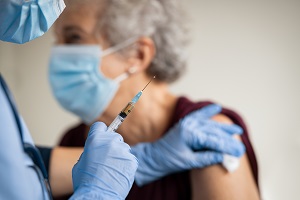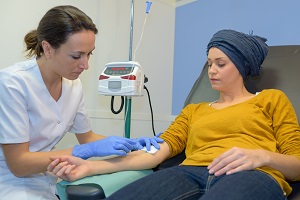May 2021 News Roundup
This month features traveling neurointerventionalists, a fresh take on vaccine hesitancy, frailty assessment in TAVI, and more.

Every month, Section Editor L.A. McKeown curates a roundup of recent news tidbits from journals and medical meetings around the globe.
A new in-hospital model for predicting mortality in PCI patients incorporates variables such as procedural urgency, cardiovascular instability, and level of consciousness after cardiac arrest. Reporting in the Journal of the American College of Cardiology, the investigators say the model performed well, with excellent discrimination and calibration across different patient groups.
 In the 360-patient NEUROSQUAD study, dispatching a neurointerventionalist to a remote hospital to perform thrombectomy was found to be a valuable triage option in acute stroke treatment, with patient outcomes comparable to those of patients who were either directly admitted to, or secondarily transferred to, comprehensive stroke centers.
In the 360-patient NEUROSQUAD study, dispatching a neurointerventionalist to a remote hospital to perform thrombectomy was found to be a valuable triage option in acute stroke treatment, with patient outcomes comparable to those of patients who were either directly admitted to, or secondarily transferred to, comprehensive stroke centers.
In patients with elevated plasma triglycerides and an elevated cardiovascular risk profile, omega-3 fatty acid (O3FA) supplements may increase the risk of development of atrial fibrillation (AF), a meta-analysis suggests. Published in the European Heart Journal, the study authors suggest that “the risk of AF should be considered when prescribing O3FA supplementation in this population.”
Patent foramen ovale (PFO) closure plus antiplatelet therapy is not more efficacious than antiplatelet therapy alone in reducing annual rates of migraine events, according to a planned substudy of the CLOSE trial. Over a mean follow-up of 5 years, patients with and without aura who had the intervention also saw no differences in migraine‐related disability or use of migraine‐preventive medications compared with those in the antiplatelet-only group, researchers report in the European Journal of Neurology.
 Many people in the United States who have been labeled as “hesitant” about getting the COVID-19 vaccine may in fact be receptive to it, but only if it is offered or presented to them in familiar settings, a perspective in the New England Journal of Medicine suggests. The authors say shifting vaccination to local providers may improve rates in that group, as well in those considered vaccine “neutral,” who may acquiesce while seeking care for other health issues, “if the vaccine is available and they receive a ‘nudge’ from a trusted clinician.”
Many people in the United States who have been labeled as “hesitant” about getting the COVID-19 vaccine may in fact be receptive to it, but only if it is offered or presented to them in familiar settings, a perspective in the New England Journal of Medicine suggests. The authors say shifting vaccination to local providers may improve rates in that group, as well in those considered vaccine “neutral,” who may acquiesce while seeking care for other health issues, “if the vaccine is available and they receive a ‘nudge’ from a trusted clinician.”
Development of new-onset AF after STEMI increases long-term mortality, but oral anticoagulants can significantly reduce that risk (adjusted HR 0.69; 95% CI 0.47-1.00), Danish researchers report in the American Heart Journal. Current guidelines limit oral anticoagulants in this patient group, reserving them for AF complicating ACS rather than new-onset AF after STEMI.
A predictor of suboptimal outcomes, frailty is an important consideration in TAVI patients. While there are a number of validated assessment tools and known periprocedural considerations, a review article in Structural Heart pinpoints needs with regard to future research. These include identifying interventions that positively modify adverse effects of frailty, evaluating routine use of frailty assessment in low-risk patients, and creating virtual models for frailty management.
 A state-of-the-art review in JACC: CardioOncology examines what is known about venous and arterial thromboembolism prevention and management in cancer patients, and where evidence gaps remain.
A state-of-the-art review in JACC: CardioOncology examines what is known about venous and arterial thromboembolism prevention and management in cancer patients, and where evidence gaps remain.
A study of the predictors of periprocedural myocardial injury (PPMI) following TAVI found that the risk is two- to threefold higher with self-expanding valves versus balloon-expandable valves. Writing in Heart and Vessels, the investigators say despite PPMI being a fairly frequent occurrence, it did not affect 30-day or 1-year all-cause mortality in their single-center study of 596 patients.
L.A. McKeown is a Senior Medical Journalist for TCTMD, the Section Editor of CV Team Forum, and Senior Medical…
Read Full Bio




Comments